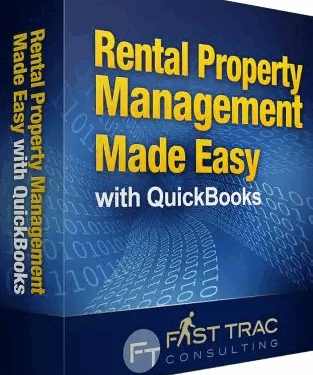
Delve into the world of QuickBooks property management with this detailed guide that unravels the intricacies of efficiently managing properties. From tracking rental income to generating financial reports, QuickBooks offers a robust solution for property managers looking to streamline their tasks.
In the following sections, we will explore the setup process, managing income and expenses, handling tenant payments, generating financial reports, and integrating QuickBooks with property management software. Let’s embark on this insightful journey together.
Introduction to QuickBooks Property Management
QuickBooks is a popular accounting software that offers a range of tools and features to help businesses manage their finances effectively. When it comes to property management, QuickBooks can be a valuable tool for streamlining tasks, tracking expenses, and organizing financial data.
One of the main benefits of using QuickBooks for property management is its ability to centralize financial information in one place, making it easier to monitor income, expenses, and overall cash flow. This can be particularly useful for property managers who oversee multiple properties and need to stay on top of various financial transactions.
Examples of Tasks Managed with QuickBooks in Property Management:
- Tracking rental income and expenses for each property
- Generating financial reports to assess property performance
- Invoicing tenants for rent and other charges
- Managing vendor payments and tracking maintenance expenses
Setting Up QuickBooks for Property Management
Setting up QuickBooks for property management purposes is crucial for accurately tracking income, expenses, and overall financial health of your properties. By following a step-by-step guide and utilizing customization options, you can tailor QuickBooks to meet the specific needs of your property management business.
Step-by-Step Guide
- Create a new company file in QuickBooks specifically for your property management business.
- Set up your chart of accounts to include categories for rental income, property expenses, maintenance costs, and more.
- Add vendors and suppliers to keep track of expenses related to property maintenance, repairs, and services.
- Set up tenants as customers in QuickBooks to easily track rental payments and outstanding balances.
- Customize invoices and reports to reflect the unique aspects of your property management business.
Customization Options
- Customize your chart of accounts to align with the specific needs of your property management business, such as creating separate accounts for different properties or income sources.
- Utilize tags or classes to categorize transactions by property, allowing for easy tracking and reporting.
- Create custom fields to capture additional information about tenants, properties, or transactions that are important for your business.
Importance of Accurate Setup
Accurately setting up accounts, vendors, and tenants in QuickBooks is essential for maintaining organized financial records, tracking income and expenses effectively, and generating insightful reports for informed decision-making. Proper setup ensures that you have a clear picture of the financial health of your property management business and helps streamline processes for better efficiency and profitability.
Managing Rental Income and Expenses
When it comes to managing rental income and expenses, QuickBooks offers a robust set of tools to help property managers stay organized and track financial transactions efficiently.
Tracking Rental Income and Expenses
- Utilize QuickBooks to record all rental income received from tenants, including rent payments, late fees, and any other sources of income related to the property.
- Categorize expenses such as maintenance costs, property taxes, insurance premiums, and utilities to accurately track spending and assess profitability.
- Set up recurring transactions in QuickBooks to automate the process of recording regular income and expenses, saving time and ensuring accuracy.
Categorizing Expenses
- Organize expenses into categories such as Repairs & Maintenance, Property Taxes, Insurance, Utilities, and HOA Fees to better analyze spending patterns and identify areas for cost savings.
- Use subcategories within each expense category to provide more detailed insights into where money is being allocated and make informed decisions about budgeting and financial planning.
Reporting Features for Analysis
- Generate financial reports in QuickBooks, such as Profit and Loss Statements and Balance Sheets, to evaluate the overall financial health of your property management business.
- Customize reports to focus on specific metrics like rental income, vacancy rates, or maintenance expenses to gain a deeper understanding of your property portfolio’s performance.
- Utilize graphs and charts within QuickBooks reports to visualize trends and patterns in rental income and expenses, making it easier to identify areas of strength and areas needing improvement.
Handling Tenant Payments and Leases
When it comes to managing tenant payments and leases, QuickBooks provides a streamlined solution that can help property managers stay organized and efficient. From recording payments to tracking lease agreements, QuickBooks offers tools to simplify these processes.
Recording Tenant Payments
- QuickBooks allows you to easily record and track tenant payments, whether they are made by check, cash, or online transfer.
- You can set up recurring invoices for rent payments, making it convenient for both tenants and property managers.
- By categorizing payments accurately, you can generate reports to track rental income and monitor outstanding balances.
Tracking Lease Agreements and Renewals
- QuickBooks enables you to store lease agreements electronically, making it easy to access and reference important lease terms.
- You can set reminders for lease renewals, ensuring that no deadlines are missed and leases are appropriately extended.
- Tracking lease agreements in QuickBooks helps maintain a comprehensive record of tenant obligations and rental terms.
Managing Security Deposits
- QuickBooks allows you to record security deposits separately and reconcile them against tenant balances to ensure accuracy.
- By categorizing security deposits appropriately, you can easily identify and manage these funds within your accounting system.
- Regularly reconciling security deposits in QuickBooks helps maintain financial transparency and compliance with regulations.
Generating Financial Reports
Generating financial reports is a crucial aspect of property management as it provides valuable insights into the financial health of your properties. QuickBooks offers a variety of tools to help property managers generate accurate and detailed financial reports efficiently.
Types of Financial Reports in QuickBooks
- Profit and Loss Statement: This report shows the income and expenses of your properties, helping you understand the profitability of each.
- Balance Sheet: Provides a snapshot of your property’s financial position, showing assets, liabilities, and equity.
- Rental Income Report: Breaks down rental income by property, tenant, or time period, helping you track rent payments effectively.
- Expense Report: Details all expenses related to your properties, allowing you to monitor and control costs.
Customization Options in QuickBooks
QuickBooks allows property managers to customize financial reports to suit their specific needs and preferences. You can adjust the reporting period, add or remove columns, apply filters, and create custom fields to tailor the reports to your requirements. This flexibility ensures that you get the most relevant and useful information from your financial reports.
Benefits of Financial Reports in Decision-Making
- Identifying Profitability: Financial reports help property managers identify profitable properties and make decisions on investments and expansions.
- Budgeting and Forecasting: By analyzing financial reports, managers can create accurate budgets and forecasts for their properties, ensuring financial stability.
- Tenant Evaluation: Reports on rental income and expenses help in evaluating tenant performance, identifying potential issues, and making informed leasing decisions.
- Tax Compliance: Financial reports provide the necessary data for tax compliance, making it easier to prepare and file tax returns accurately.
Integrating QuickBooks with Property Management Software
Integrating QuickBooks with specialized property management software offers numerous benefits for property managers looking to streamline their financial processes and improve overall efficiency.
By integrating QuickBooks with property management software, users can ensure seamless synchronization of financial data, automate repetitive tasks, and gain a comprehensive overview of their property management operations.
Benefits of Integration
- Efficient Data Management: Integration eliminates the need for manual data entry, reducing errors and saving time.
- Streamlined Processes: Automation of tasks such as rent collection, expense tracking, and reporting improves operational efficiency.
- Real-Time Insights: Integrated systems provide up-to-date financial information for informed decision-making.
Process of Integration
The process of integrating QuickBooks with property management software typically involves connecting the two systems through an API or integration platform. Data can be synced automatically between the software, ensuring consistency and accuracy.
Popular Software for Integration
- Rent Manager: A robust property management software that seamlessly integrates with QuickBooks for comprehensive financial management.
- AppFolio Property Manager: Offers seamless integration with QuickBooks for streamlined accounting processes and financial reporting.
- Buildium: Integrates with QuickBooks to provide property managers with a complete solution for rental property management and accounting.
Last Word
As we conclude this discussion on QuickBooks property management, it becomes evident that leveraging this software can significantly enhance efficiency and productivity in property management tasks. By embracing the tools and features offered by QuickBooks, property managers can make informed decisions and streamline their operations effectively.
Questions Often Asked
How can QuickBooks benefit property managers?
QuickBooks provides a user-friendly platform to efficiently manage tasks such as tracking income and expenses, handling tenant payments, and generating financial reports specific to property management needs.
What customization options are available in QuickBooks for property management?
QuickBooks offers customization options for setting up accounts, vendors, and tenants tailored to property management requirements, ensuring accurate and streamlined operations.
Can QuickBooks integrate with property management software?
Yes, QuickBooks can seamlessly integrate with specialized property management software, allowing for the synchronization of data and enhancing overall operational efficiency.














